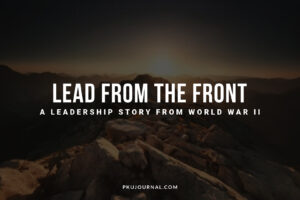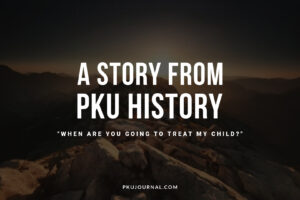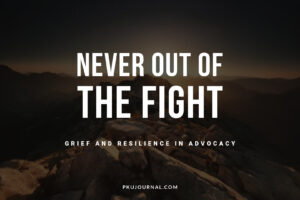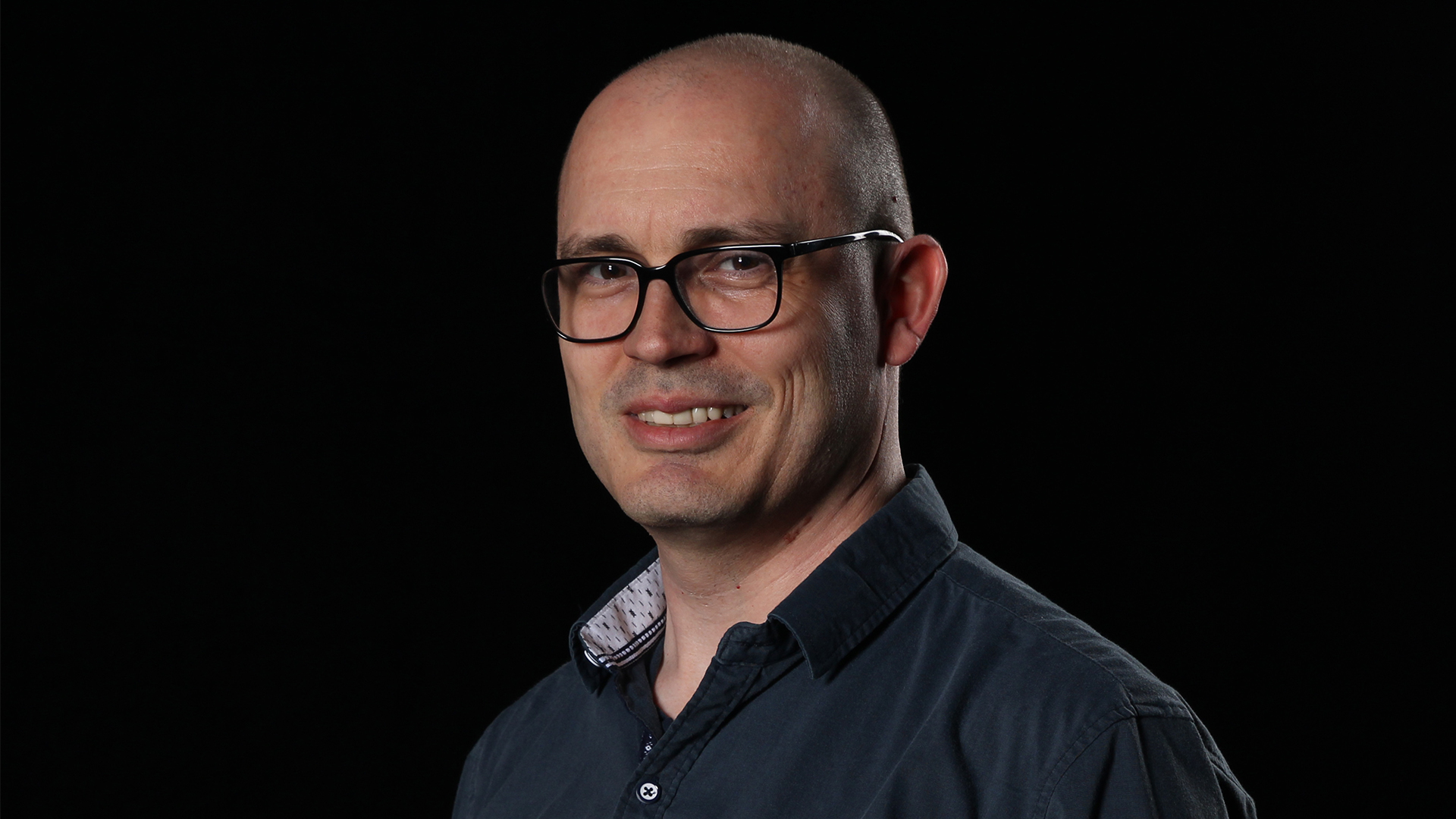Learning to accept your rare disease life means honoring your limits, finding strength in community, and living with courage and purpose.
Accepting Your Rare Disease Life
If there is one habit – one discipline – that has kept me grounded and centered over the last couple of decades it’s the practice of keeping a daily journal. My journal goes with me everywhere. All of the time. I write because I must. I know of no other way of organizing my thoughts.
I created my blog last year because I wanted a place to share my thoughts with the PKU community. Not as a filmmaker, which has been my primary medium of advocacy. As a writer. All of my articles begin as entries in my journal. And the same is true of this podcast. It’s my journal in audio form.
If I could describe the journey I’ve been on over the last year, in one word… One idea that succinctly describes everything I’m dealing with… One theme central to my life right now… It’s acceptance.
I’ve had unusual life experiences. And on top of that I have a rare disease. I’m trying to learn to be OK with it all. To live with memories and experiences that follow me everywhere. That I couldn’t forget if I tried. I have tried. It doesn’t work.
Acceptance is a daily struggle for me, just like prioritizing all aspects of my mental health. I write and share stories, first and foremost, for me. Because I need to be reminded of who I am, what I’ve seen, what I’ve done, and what I’m working on in life. I’ve had some amazing experiences all over the world. But at this point in my life, I’m less interested in what I do and more interested in who I am becoming.
That is all about learning to practice acceptance.
And for me, acceptance begins with understanding my motivation. If I understand my purpose in life then I can endure anything. I have been on a quest for meaning, a way to make sense of experiences which often seem senseless.
Writing this podcast has helped me make sense of my rare, uncommon life. My rare disease and the experiences it has brought me shape my view of the world.
One experience, early in my advocacy career, remains special to me. I found myself in Washington, D.C. less than a year after I produced “My PKU Life”, collaborating on a newborn screening campaign. But something else happened that week, after my meetings were over and I had time to be alone in the capitol.
It’s an experience I remember often, because it reminds me how my life turned out this way, how it could have been different, and why I am passionate about PKU, newborn screening, and rare disease advocacy.
I stood, motionless… silent… as the funeral procession passed by. It was a bright sunny, summer day in 2012, and I was at Arlington National Cemetery in Washington, D.C.
I was a child when I first visited the Capitol, and my family went to Arlington on that trip. But I don’t remember it well. I was very young. But now, as an adult, I wanted to pay my respects. But I didn’t realize that I would witness three funerals that day.
I planned to visit the Tomb of the Unknown Soldier, a symbolic grave for fallen US service members whose remains have not been identified. It’s a solemn place. There is always a guard at the tomb. Always. No matter the weather conditions.
I also wanted to see the memorials to Space Shuttles Challenger and Columbia. I was at school, watching live with the other children, when the Challenger exploded. And later, when I was a TV photojournalist, I covered the Columbia Shuttle disaster after it broke apart over our viewing area. So I wanted to visit those memorials. It was important to me.
But something else was on my list that day at Arlington. Something very personal. I wanted to visit the grave of a man I had never met.
Lieutenant Commander Jonas Kelsall was a US Navy SEAL from my hometown of Shreveport, Louisiana. He was killed in Afghanistan one year prior, in August 2011. He was a couple of years older than me, and I knew people who went to high school with him. But that’s where our personal connection ended.
I wanted to visit his grave and pay my respects because something about his story moved me.
He represented the life I originally wanted, but couldn’t have, because of my rare disease… because of PKU.
My first dream was to join the military. I come from a family with a strong tradition of service. On my father’s side of the family… my grandfather was in the Navy during World War II. His brother was in the Army.
My father is a retired Army Reserve Lieutenant Colonel. During his years in the Army, he was stationed in Korea during the Vietnam War. Later, when he was in the Reserves, he was called to active duty during the first Gulf War. He spent about seven months away from home. He wasn’t in danger. He was a few hours away and I got to see him occasionally. But I was ten, and it was hard while Dad was away.
My brother was in the Air Force Special Forces unit Pararescue. He began his training with over one hundred others and finished as one of sixteen. A skydiving accident ended his military service, but not his life.
On my mother’s side, my grandfather was in the Army during World War II. Three of my uncles served during Vietnam. Two are combat veterans. One of them was a Marine, or is a Marine… once a Marine, always a Marine. And the other was in the Army’s legendary 101st Airborne Division, and the only survivor from his platoon.
So, in my family, military service was encouraged. Never expected. But encouraged.
The stories we hear at a young age follow us for life. And for me, many of those stories were about life in the military. They fascinated me. Yet I wondered if I could ever join because of PKU.
PKU treatment was viewed differently when I was a child. Today we have concepts like “treatment for life”. But in the eighties I was told that one day, perhaps after I turned eighteen, I might be able to go off the PKU low-protein diet, and eat whatever I wanted.
To me, that meant military service might be an option. If I couldn’t eat an MRE, or Meal Ready to Eat, then I had no hope of service. You can’t be in a combat zone with a medical condition like PKU, one that requires a strict diet and frequent consumption of a medical drink.
PKU affects my ability to eat whatever is available, or go long periods without eating. And I was familiar with a military lifestyle that was centered around high-protein diets in some situations, or going without food for extended periods of time, like in survival scenarios. I certainly couldn’t be without my medical drink that I need for my brain to remain healthy.
But with the possibility of a more normal diet later in life, I held on to the hope of military service.
That only intensified when I entered high school and my brother was training for the Special Forces. He told me stories of the intense physical challenge, of survival training, jump school… But what really captured my imagination was HALO, or High Altitude Low Opening. That’s code for skydiving. From about 20,000 feet. I watched the video from their class, saw my brother jump, and thought, “Yeah, I’d love to do that.”
I didn’t consider myself a thrill-seeker. But I’ve since learned that if I have a mission and a purpose, and a cause I believe in… passionately… I’ll do anything.
So, my dream of military service narrowed to the Special Forces. If I was going to do something, I wanted to be the best, with the best. And I was especially fascinated by the Navy SEALs.
Despite being told when I was younger that one day I might be able to eat a normal diet, as I got older that didn’t happen. As geneticists began to understand PKU better, their medical opinion changed. Going off the low-protein diet was no longer recommended. Ever.
So the older I got, the more I realized that PKU would prevent me from accomplishing my dream. I couldn’t follow in my family’s footsteps. I wouldn’t be able to join the military.
I had the heart for it, but not the body for it.
Throughout life, I have tried to keep a positive attitude about living with my rare disease. For the most part, I don’t think it has prevented me from accomplishing my goals. I finished college, got a master’s degree, and I’ve had a nice career. I try to encourage others with PKU to never let this rare disease stop them from experiencing life.
But I have to be honest here and admit something. Having PKU did prevent me from accomplishing my first dream. I could not join the military. And that has been hard for me to accept. No one ever made me feel like less of a person for not joining. Again, in my family it was encouraged if that was what you wanted. But it was never expected.
Still, I felt like I was letting others down. And myself. The people I know in the military joined for one reason – the desire to serve. And yet, there is another reason… the desire to test yourself. To prove yourself. To discover yourself… who you really are… what you are willing to fight for… how hard you are willing to fight… what you are made of.
I felt like I was missing my opportunity to serve… and to test myself.
Over the years I watched as friends served with distinction, excelling in their roles as non-commissioned officers. Others became officers and rose through the ranks, becoming majors or lieutenant colonels. I watched them sacrifice and serve, and wondered what my life would have been like had I been able to join the military.
Some questions, some doubts, I still have daily. “Would I have kept my cool in combat? Would I have been a good platoon leader? Do I have what it takes to be an officer and have others depend on me for their lives?” These are questions I can never answer, because I can never join.
Other questions also plague me… “Would I have been able to make the cut in the special forces? Could I have survived hell week in the Navy seals? To make it through BUD/S (Basic Underwater Demolition/Seal Training).” As I watched my brother make the cut in the special forces, at a time when I still thought I could go off the low-protein PKU diet when I was an adult, I began to dream about a life in the special forces. Yes, I have little brother syndrome. I wanted to be like my big brother. I still do.
But as much as I want to ask myself these questions, and daydream about another life, they are a distraction.
It may have been the life I wanted, but it’s not the life I have.
I slowly began to accept that my first dream would not come true. But I had not yet discovered my opportunity to serve.
It took me a long time to realize this, but many times in life we think that a specific desire or goal is the only way we will ever be happy or fulfilled. But it’s easy to ignore the deeper reason.
I was convinced that military service was the only way I’d be happy or fulfilled. That it was the only path to service.
I said it a few weeks ago, and it’s worth repeating.
Some dreams have to die for new ones to be born.
Once my first dream died, and I realized that PKU would prevent me from achieving that goal, I switched focus to storytelling.
I was convinced that I wanted to be a storyteller… and that I would only be happy as a film director or a screenwriter. But, in a twist that I didn’t expect, I discovered non-fiction storytelling when I later worked in broadcast journalism, and I never looked back. That’s what I’ve been doing now for over twenty years.
But, for a long time something was still missing. I found work that I enjoyed after not being able to pursue my original dream. But the spark behind my dream of a military career was the desire to serve a cause greater than myself. And I finally began to realize that there are many ways to serve.
I discovered my path of service with PKU, newborn screening, and rare disease advocacy. It’s not something I planned for. I just saw a story that needed to be told about a cause that meant everything to me.
Throughout this season of this podcast, I have shared stories about my life as a storyteller, my life as a rare disease advocate, and my life as… well, someone who has lived, and has experienced both intense joy and pain.
And one of the greatest experiences of my life has been this last decade with my work in advocacy.
I had hopes and dreams for life that I lost along the way. I wanted to be in the military and couldn’t because of PKU. It felt like my rare disease took my dream away from me. And then later, in my TV news career – working in the field covering crimes, and accidents, and natural disasters – that experience robbed me of hope.
But when I discovered advocacy, I discovered my path back to hope. It was only through learning about and beginning to practice acceptance that I was able to put my life back together again.
And to me, acceptance is about learning to live with what you have, and then using that life experience to serve others. By taking my experiences – my joy and pain, my skills and gifts – by taking whatever I have and channeling that into serving a cause greater than myself – I learn to accept what I have, and not focus on what I have lost.
What do I have? Most importantly, I have a sense of purpose and direction in life. I have a mission. A cause to fight for.
And I have friends… a community… people to fight for.
The Air Force Pararescue has a motto: “That others may live”. My brother told me about that when he served in the unit, and I loved that. It inspired me deeply, and reminded me why I wanted to serve.
It reminds me today why I fight for the PKU, newborn screening, and rare disease communities.
I fight for others.
I have a relatively easy life with my rare disease. I can eat almost normal amounts of protein now thanks to my medication.
Others can’t.
I was diagnosed at birth because of newborn screening.
Others weren’t.
And I have treatment for my rare disease.
Others don’t.
I fight for others, because I can.
Because everyone with a rare disease deserves a life where their medical diagnosis doesn’t hold them back from living the life they desire. And because I want others to know that no matter how hard it gets, life is still beautiful, and that there is always hope.
Everyone in the rare disease community is a fighter.
In the PKU community, we fight to get insurance coverage for the treatments we require. We fight for new treatments that work for everyone. And we fight to find a cure for PKU.
In the newborn screening field, we fight… doctors, researchers, lab workers, policymakers, patient advocates… We all fight to get equal access to screening for every baby in the world. We fight to make sure the results are returned in a timely manner and that there are no detrimental or deadly delays. And we fight to get new rare diseases added to the recommended uniform screening panel.
In the broader rare disease community, we fight to understand more about the 10,000 known rare diseases. We fight for treatments for the 95 percent of rare diseases that currently have none. And we fight for a world in which 30 percent of children with a rare disease won’t die anymore by the age of five.
We fight alongside each other. We fight for each other.
We’ve been given a life that is uncommon. And that means we have the capability of being uncommon people.
We have inner strength and resolve that others may never recognize. Yet we know it is there.
We fight with honor, because our cause is just. Fighting for children, teens, and adults with rare and chronic diseases is just the right thing to do.
We live with courage, because we must face our fears daily. We live with constant uncertainty, especially those of us who have a little-understood rare disease.
We act with compassion, because we know what it means to endure hardship. We know how it feels to be the outcast… the forgotten.
We are people who learn that we are more capable than we can possibly imagine.
We fight because we must. And we will never stop.
As I write this, Rare Disease Week 2023 just ended. I’m in Washington, DC, waiting for my flight home. This was the first time I’ve been here on an advocacy trip since before COVID.
And what a week. Although I’ve been here to advocate before, this was my first opportunity to connect with so many from the broader rare disease community. Over 500 of us gathered on Capitol Hill, shared our stories, made our voices heard. We looked legislators and their aides in the eyes, and let them know… we exist. And that our stories matter.
It was a great week reconnecting with old friends and making new ones. After it was all over, and I finally had some time alone, I went back out to Arlington National Cemetery. And I visited Lieutenant Commander Jonas Kelsall’s grave again. As I said in the story, I never met him. But his story moved me. It reminds me of the life I wanted, but could never have. But thankfully, I found my way to PKU, newborn screening, and rare disease advocacy. And I found my path to serve.
When I began writing this podcast, months ago, I went back and reviewed old material that I had previously written. Articles on my blog. Facebook posts. Old speeches. Even a few articles I wrote as a guest on other publications. And I came across a phrase that I wrote over a decade ago.
“I can’t control the fact that I have PKU. But I can control what I do with it.”
You can’t control the fact that you have a rare disease. But you can control what you do with the life that you have.
For some, all of their energy will go into the daily maintenance of their rare disease. For others, it will go into caring for their loved ones. But for those of us who can, we have the opportunity to speak out on behalf of others.
That’s what I’m determined to do with my life. Whatever voice I’ve been given, whatever platform I have, I am going to use it to raise awareness of the rare disease lifestyle. Because when I do, I learn to accept an experience that I didn’t ask for, but that I’m determined to enjoy.
On this podcast I’ve shared some of my stories with you. Stories about my life, stories about my rare disease, and stories about my experiences in advocacy. But my question to you now is… what’s your story? If you are in the rare disease community, the world needs to hear it.
You owe it to yourself to think about your life, your story, and then speak up… and share it. You never know who will listen and how your voice can change the world.
Because your voice… is powerful.
So please, share your story. Engage with the rare disease community. Remember that there is always hope.
And never, never, never give up.











Leave a Reply